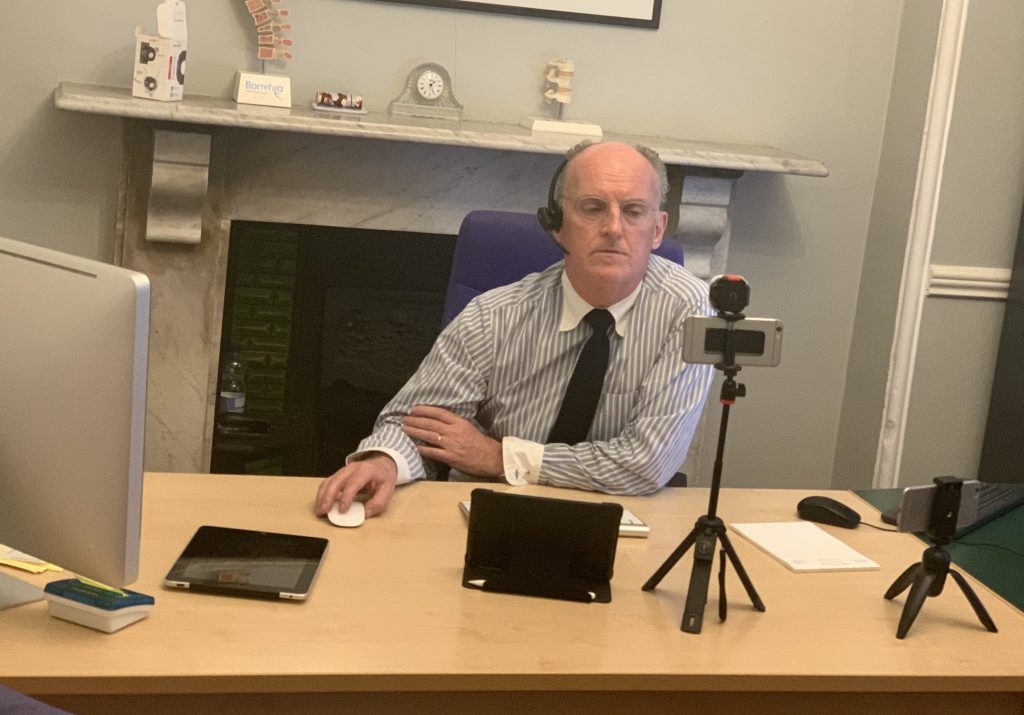Telemedicine (Video Consultation)
Telemedicine appointments (video or telephone call appointments) are carried out on a weekly basis. These appointments replicate (in so far as possible) the traditional face-to-face appointment. An appointment time is given and the patient and/or their carer or representative contacted via their preferred methodology (Skype, Facetime, Zoom, Jitsi – over VPN or telephone). At the time of booking the telemedicine appointment, the patient or the carer is asked for a secure email address to which the clinical summary together with a prescription, if required, can be sent. The patient is given a secure email address to which clinical details and the current drug lists can be sent prior to the appointment.

You can get in touch with us here:
How to get the most out of a telemedicine appointment
- Ensure that the patient is in a quiet place with no extraneous noises or potential interruptions
- It is essential that there are no more than one or two people with the patient at the time the conference call has been conducted.
- Clinical consultations are highly confidential and therefore it is essential that both ends of the telemedicine connections are secure and replicate as far as possible circumstances of the face-to-face consultation. From a technical point of view, a virtual private network (VPN) is used to ensure end-to-end security

Advantages and Disadvantages of a telemedicine appointment
There are advantages to a telemedicine appointment including adherence to social distancing, convenience, reduced risk of infection and avoidance of travel.
There are some disadvantages including the inability to conduct clinical examination and technical limitations may arise.
These factors need to be considered when deciding on the most appropriate mode of consultation in any given clinical circumstance. However the general format of the consultation will, so far as possible, follow the same general format as a face-to-face consultation. The consultation should not be recorded as a clinical summary of the consultation will be dictated (in the patients presence) at the end of the assessment and shall be sent by email to the patient and also the patient’s GP.
Legal issues
In choosing to participate in a telemedicine consultation the patient is consenting to the consultation process with its known advantages and disadvantages. The patient is also consenting to use the telecommunications modality selected and the use of the telephone number and email address that has been provided. In circumstances where the number or email supplied is not the patient’s own, the patient is also consenting to the medical data being shared with that person to the extent necessary to facilitate a successful consultation. It may be, that following a telemedicine consultation, a face-to-face appointment is deemed necessary to achieve optimal care and that can be arranged.